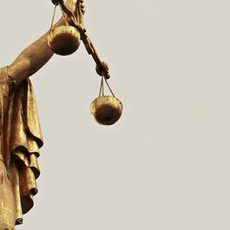
Is privacy a vestige of the past? Many think that in the midst of the twenty-first century this simple concept has disappeared. Nevertheless, lately the debate seems to be changing, and concern about privacy is experiencing a resurgence. This mood change was largely triggered by the Cambridge Analytica scandal, which showed how personal data was shared and used without the knowledge of users for false purposes, such as influencing various elections.
This change in public opinion is evident in Europe, which has put in place an important regulatory weapon in this respect: the General Data Protection Regulation (GDPR).
A recently presented study, ‘Data, Privacy and the Individual’, believes that the GDPR “inaugurated the beginning of robust data protection regulation in the digital age”. The report, written by The Center for the Governance of Change and overseen by researcher Carissa Véliz from Oxford University, considers that “getting privacy right is one of the biggest challenges of this new decade of the 21st century. As data scandals continue to emerge, questions abound as to how to interpret and enforce regulation, how to design new and better laws, how to complement regulation with better ethics, and how to find technical solutions to data problems”.
Finding a balance between regulations that protect the citizen and the massive use of data for everyone’s progress is one of the biggest challenges of our time. But beyond the regulatory leadership that Europe has taken on, what is the role of business? Should they limit themselves to complying with regulations or does their responsibility imply going a step further? These questions were the focus during the report’s presentation.
A question of ethics
For Ricard Martínez, Director of the Chair in Privacy and Digital Transformation at the University of Valencia, “businesses shouldn’t limit themselves to waiting for every aspect to be regulated, as there is an ethics of rights that should be incorporated into business activity”. It is not only an ethics of privacy, he stated, but something broader: an ethics of fundamental rights. Nevertheless, “we have a generation that has learned under the paradigm of ‘Move fast and break things’ [Facebook’s former motto]. Ethics aren’t taught in Masters programs on Big Data”, he lamented.
The importance of the concept of ethics when handling personal information on internet platforms diminishes the now overused conceptualization of data as ‘the new oil’. In contrast to this fossil fuel, data has an essential connection to a person’s dignity and this relationship should not be ignored. Considering data as one more piece of private property also distorts the debate. As Carissa Véliz explains: “Private property has some clear limits; data does not. And your data contains data from others. Commercialising this data is not like selling a house”.
Facing these difficulties and the asymmetry of power between platforms and citizens, the solution could be in a word that is currently in fashion: empowerment. Internet users must have control over their data and decide when it can be used and when it cannot, avoiding the usual all or nothing. Even if only intuitively, we all know this debate is important. Because, as Karina Vold, Research Associate at the Centre for the Future of Intelligence at Cambridge University, explains, “if they gave us a choice between two identical lives, one constantly monitored by the internet and another without surveillance, we would all be very clear about which one we would choose”.




